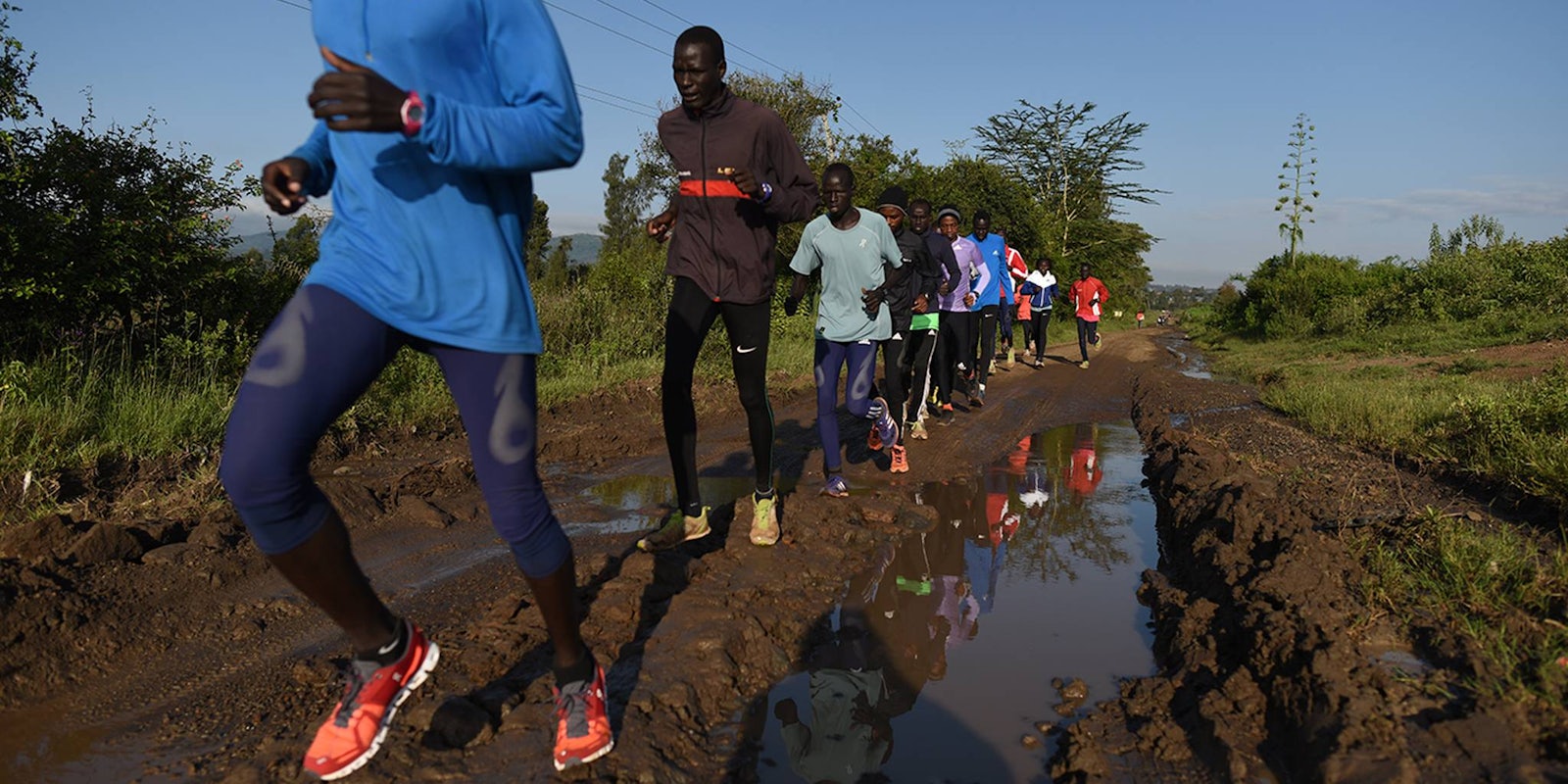The Olympics are undeniably one of the biggest international athletic events in human history, on a scale perhaps only rivaled by the World Cup.
While it’s a hugely competitive event, it’s also a chance for people to come together, beyond national borders. That’s especially the case at the 2016 Summer Olympics in Rio, Brazil. The International Olympic Committee (IOC) announced on Friday that for the first time ever, a team of refugees will be competing.
This is extremely apropos, given the dire straits currently faced by the global refugee community. With millions of Syrians forced to flee their native lands amid violence and brutality, whether perpetrated by ISIS or by Syrian dictator Bashar al-Assad, there’s a glut of refugees seeking new homelands right now.
Add that to the refugee population from other parts of the world, and it’s a dire state of affairs, especially since refugees from majority Muslim countries have faced increased scrutiny and stigmatization from some western nations. As both a show of solidarity and a means to raise public awareness, this new Olympic refugee team should be an exciting and inspirational sight.
There are ten members of the team, as the United Nations refugee agency detailed in a press release on Friday. Five of them originally hailed from South Sudan, two of them are from Syria, two more are from the Democratic Republic of the Congo, and one is from Ethiopia. Here’s the full list:
-
25-year-old Rami Anis, a swimmer raised in the city of Aleppo, Syria. Anis ultimately left Syria for Turkey at his family’s behest before ultimately settling in Belgium.
-
18-year-old Yusra Mardini, a swimmer from Damascus, Syria who fled to Turkey and Greece before arriving in Germany, where she’s been training with a club in Berlin since September of last year.
-
24-year-old Paulo Amotun Lokoro, a runner from war-torn South Sudan who eventually fled to Kenya, settling in a refugee camp with dreams of becoming a world champion.
-
21-year-old Yiech Pur Biel, an 800-meter runner from South Sudan who fled to Kenya in 2005, and ultimately settled on sprinting after feeling frustrated with the lack of control he had in the team sport of football.
-
23-year-old Rose Nathike Lokonyen, another 800-meter runner from South Sudan who had no idea how fleet-footed she was until participating in a 10-kilometer run while living in a refugee camp in northern Kenya. Kenya is a natural destination for refugees from South Sudan, as the countries share a narrow border.
-
21-year-old Anjelina Nadai Lohalith, a 1,500-meter runner from South Sudan who fled her native land at the age of six, losing all direct contact with her parents. She now lives at a refugee camp in northern Kenya, and she hopes a good showing at Rio will springboard her into other races that offer prize money, so she can help her family still living in South Sudan.
-
28-year-old James Nyang Chiengjiek, another 800-meter runner from South Sudan, albeit one far older than the fellow runners on his refugee team at 28. He fled his homeland to avoid being captured and made into a child soldier, and he currently lives in Kenya.
-
28-year-old Yolande Mabika, a martial artist from the Democratic Republic of the Congo who’ll be competing in judo. Mabika competed at the World Judo Championship in Rio in 2013, but according to the UN’s release, she was abused by her coach following losses, including being forcibly caged. She fled this abuse and ultimately achieved refugee status within Brazil, where she’ll be competing in August.
-
24-year-old Popole Misenga, another martial artist from the Democratic Republic of the Congo who’ll be competing in judo. Misenga’s story is similar to Mabika’s: He was deprived of food during his trip to compete in the World Judo Championship in Rio in 2013, and ultimately sought asylum in Brazil.
-
36-year-old Yonas Kinde, a marathon runner from Ethiopia, and by far the oldest member of the refugee team. He ultimately settled in Luxembourg after fleeing his home in Ethiopia, citing danger to his life.
In announcing the news on Friday, IOC president Thomas Bach hailed the team’s formation as a show of talent, skill, and “the strength of the human spirit.”
“It is a signal to the international community that refugees are our fellow human beings and are an enrichment to society. These refugee athletes will show the world that despite the unimaginable tragedies that they have faced, anyone can contribute to society through their talent, skills and strength of the human spirit.”
The Rio Olympics, which have been plagued with troubles and controversies over the past several months, are nonetheless scheduled to take place in August, from the 5th to the 21st. Assuming it all goes off as planned, these ten refugees will get to compete at the highest level, representing millions upon millions of displaced people around the world.


